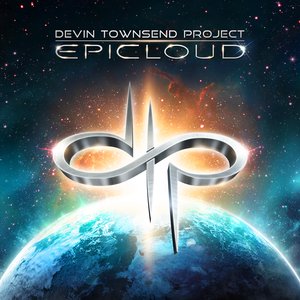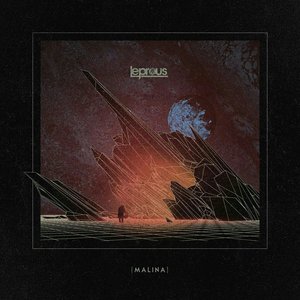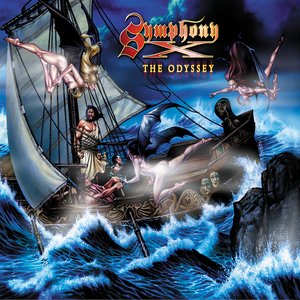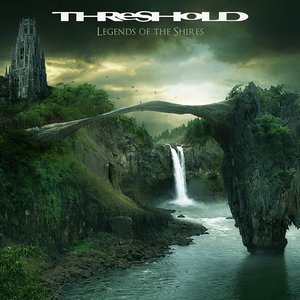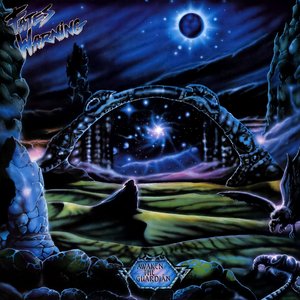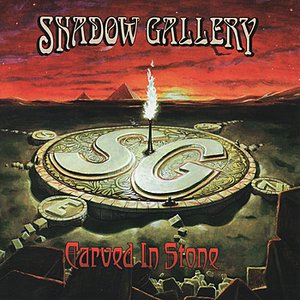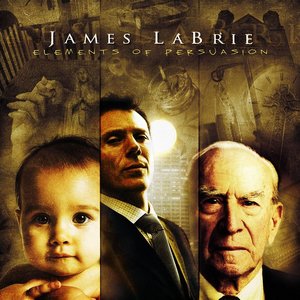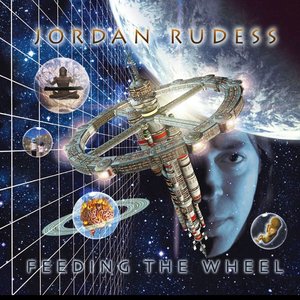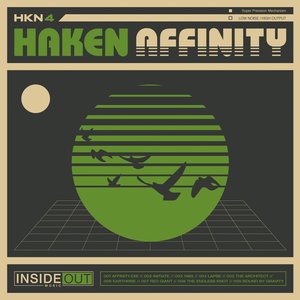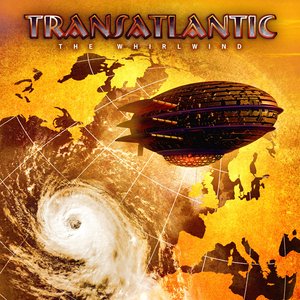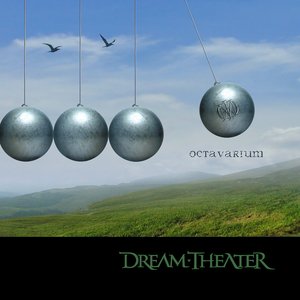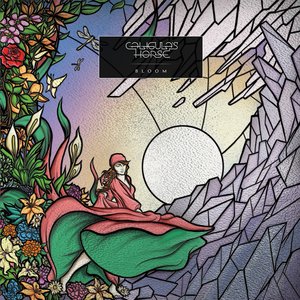Wiki
-
Release Date
October 2003
-
Length
7 tracks
Train of Thought is the seventh full-length studio album by progressive metal band Dream Theater.
History
Inspired by the audience response to Dream Theater's heavier songs while on tour, Train of Thought is widely considered their heaviest album to date. The album was written in three weeks. It was engineered by Doug Oberkircher and mixed by Kevin Shirley.
There are some connections to previous and following albums of the band:
The album has seven songs, while its predecessor (Six Degrees of Inner Turbulence) has six and its successor (Octavarium) has eight.
The first song "As I Am" starts with the ending synth/orchestral chord of Six Degrees of Inner Turbulence and the ending piano note (F) of "In the Name of God" is the first note of Octavarium's "The Root of All Evil".
"This Dying Soul" continues Mike Portnoy's Alcoholics Anonymous suite, started with "The Glass Prison" on Six Degrees of Inner Turbulence and later continued with "The Root of All Evil" on Octavarium and "Repentance" on Systematic Chaos. The songs share some of the lyrics and melodies.
Reception
The reception of the album by fans was and continues to be mixed. Some newer fans enjoyed the harder, more straightforward metal sound. Many elitist Dream Theater fans were disappointed with the style, though, and thought it was too mainstream and pandered to younger audiences. The angst and bitterness of songs like "As I Am" and "Honor Thy Father" bothered many elitists who previously thought of Dream Theater as a more mature, less angst-filled progressive group. Regardless, "As I Am" is one of the most popular songs by the group in many metal-circles.
Some elitists were disappointed by the use of "rap vocals" in songs like "This Dying Soul" and "Honor Thy Father", writing off these attempts as nu metal–a musical trend of fusing down-tuned guitar with rapping or non-traditional "singing" as well as "scratching" and other forms from Hip-Hop that was popular in the mid-to-late '90s but was dying out at the time of this album's release. However, supporters of this argue that Dream Theater, being a progressive band, should be able to use means from any musical genre without care of being "true" to a certain genre. Others were simply bothered by the generic and simplistic wordplay and lyrics written by Portnoy and recorded and rapped by LaBrie and Portnoy, which lack decent rhythmic structure of modern day hip-hop.
Songs
The Chant/Hymn at the end of "In the Name of God" (from 12:56 onwards, coming from the right-side speaker) is the American civil war hymn "Battle Hymn of the Republic".
"Honor Thy Father" was written about Mike Portnoy's stepfather. When asked about what inspired him to write that song, he stated in an IRC chat: "I'm not very good at writing love songs, so I decided to write a HATE song!!!"
Some of the mumbles during "Honor Thy Father" are taken from Paul Thomas Anderson's film Magnolia, in the scene when Jason Robards' character is talking to Philip Seymour Hoffman's character, explaining him about his regrets in life.
Between 5:51 and 6:07 of the song "In the Name of God", there was a hidden composition buried beneath the far louder sounds of the song itself which lay undiscovered for over a year and a half. The band did not tell anyone that a hidden "nugget" (as it became known amongst Dream Theater fans) was present in the song, and only when Mike Portnoy mentioned it in his Mike Portnoy: Live at Budokan Drum-Cam DVD over a year later did someone find it. The Mike Portnoy message board was rife with fans scouring the song looking for what it might be, until a fan going by the pseudonymous name "DarrylRevok" mentioned that from 05:51 to 06:07 there appeared to be morse code audible, which Nick Bogovich (user handle "Bogie") isolated and discovered that when translated to English, the phrase "eat my ass and balls" (a Mike Portnoy catchphrase) was the result.
Stream of Consciousness is the longest Dream Theater instrumental to date (not counting live mash-ups such as Instrumedley).
Some lyrics of As I Am were inspired by Dream Theater's 2003 summer tour with Queensryche, described by Mike Portnoy as an "irksome series of shows." According to Portnoy, Queensryche guitarist Mike Stone tried giving John Petrucci tips on playing guitar, leading Petrucci to write the lyrics: "Don't, Tell me whats in tell me how to write"
Jordan Rudess played the final note in the album (Heard at 14:08 in "In the Name of God") with his nose as shown in Making The Train of Thought documentary. Mike Portnoy approved the take while he was filming.
Track listing
1. "As I Am" John Petrucci Petrucci, John Myung, Jordan Rudess, Mike Portnoy 7:47
2. "This Dying Soul"
"IV. Reflections of Reality (Revisited)"
"V. Release"
Portnoy Petrucci, Myung, Rudess, Portnoy 11:28
3. "Endless Sacrifice" Petrucci Petrucci, Myung, Rudess, Portnoy 11:23
4. "Honor Thy Father" Portnoy Petrucci, Myung, Rudess, Portnoy 10:14
5. "Vacant" James LaBrie Myung, Rudess 2:58
6. "Stream of Consciousness" (instrumental) Petrucci, Myung, Rudess, Portnoy 11:16
7. "In the Name of God" Petrucci Petrucci, Myung, Rudess, Portnoy 14:16
Chart performance
Billboard 200: Train of Thought - #53
Billboard Top Internet Albums: Train of Thought - #53
UK Album Charts: Train of Thought - #146
Personnel
James LaBrie – Lead vocals
John Myung – Bass
John Petrucci – Guitar, backing vocals
Mike Portnoy – Drums, backing vocals
Jordan Rudess – Keyboards
Additional personnel
Eugene Friesen – cello on "Vacant"
Confusion with Superior's Younique
Around 2003, when Train of Thought was released, in many file sharing networks Superior's album Younique was released as Train of Thought. Superior's music is very similar to Dream Theater's which only made things more confusing and because Train of Thought has only seven tracks, Younique was cut between tracks 7 and 8, resulting in a release with 7 tracks as well. The confusion continues to this day
Album descriptions on Last.fm are editable by everyone. Feel free to contribute!
All user-contributed text on this page is available under the Creative Commons Attribution-ShareAlike License; additional terms may apply.

